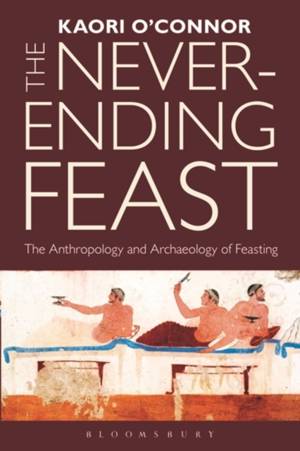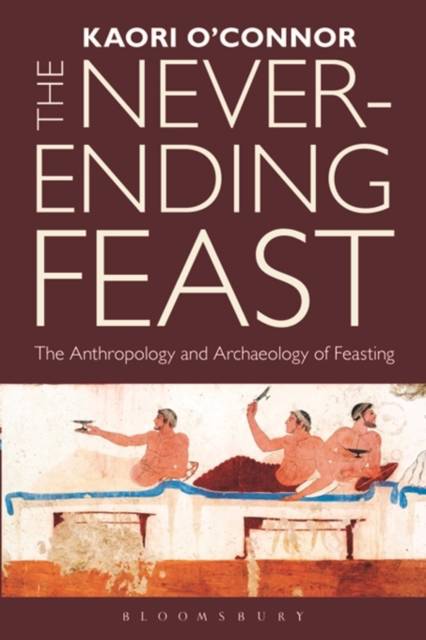
- Afhalen na 1 uur in een winkel met voorraad
- Gratis thuislevering in België vanaf € 30
- Ruim aanbod met 7 miljoen producten
- Afhalen na 1 uur in een winkel met voorraad
- Gratis thuislevering in België vanaf € 30
- Ruim aanbod met 7 miljoen producten
Zoeken
The Never-Ending Feast
The Anthropology and Archaeology of Feasting
Kaori O'Connor
Hardcover | Engels
€ 254,45
+ 508 punten
Uitvoering
Omschrijving
Feast! Throughout human history, and in all parts of the world, feasts have been at the heart of life. The great museums of the world are full of the remains of countless ghostly feasts - dishes that once bore rich meats, pitchers used to pour choice wines, tall jars that held beer sipped through long straws of gold and lapis, immense cauldrons from which hundreds of people could be served. Why were feasts so important, and is there more to feasting than abundance and enjoyment?
The Never-Ending Feast is a pioneering work that draws on anthropology, archaeology and history to look at the dynamics of feasting among the great societies of antiquity renowned for their magnificence and might. Reflecting new directions in academic study, the focus shifts beyond the medieval and early modern periods in Western Europe, eastwards to Mesopotamia, Assyria and Achaemenid Persia, early Greece, the Mongol Empire, Shang China and Heian Japan. The past speaks through texts and artefacts. We see how feasts were the primary arena for displays of hierarchy, status and power; a stage upon which loyalties and alliances were negotiated; the occasion for the mobilization and distribution of resources, a means of pleasing the gods, and the place where identities were created, consolidated - and destroyed. The Never-Ending Feast transforms our understanding of feasting past and present, revitalising the fields of anthropology, archaeology, history, museum studies, material culture and food studies, for all of which it is essential reading.Specificaties
Betrokkenen
- Auteur(s):
- Uitgeverij:
Inhoud
- Aantal bladzijden:
- 256
- Taal:
- Engels
Eigenschappen
- Productcode (EAN):
- 9781847889263
- Verschijningsdatum:
- 23/04/2015
- Uitvoering:
- Hardcover
- Formaat:
- Genaaid
- Afmetingen:
- 155 mm x 239 mm
- Gewicht:
- 544 g

Alleen bij Standaard Boekhandel
+ 508 punten op je klantenkaart van Standaard Boekhandel
Beoordelingen
We publiceren alleen reviews die voldoen aan de voorwaarden voor reviews. Bekijk onze voorwaarden voor reviews.







